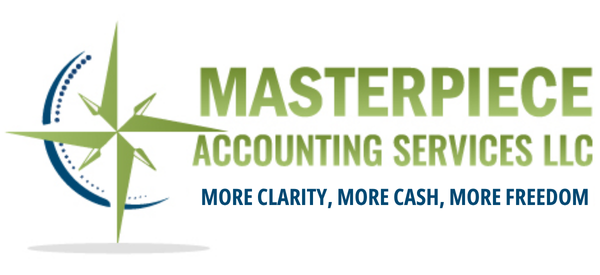FAQs
Do I need to report the cash I receive from my customers?
Yes, the IRS stipulates that all cash should be reported and therefore included in the business tax return even if it is cash. Cash received from customers is considered income.
~
What if I use my personal vehicle for business use?
You are allowed to be reimbursed for the expenses you incur on your personal vehicle during the course of doing business. Expenses such as tires, repairs and maintenance, insurance, gas, tolls, etc. The reimbursement will be based on the number of business miles driven, hence keeping record of these miles is very important.
~
What if I use the company’s vehicle for personal use?
If you are a sole proprietor, the expenses related to the business use are categorized as owner’s draw and not tax deductible. If you own an S Corp, these expenses are considered shareholder distributions and are not deducted in the tax return. In any case, you will need to keep good track of your miles.
~
How do I calculate the miles I drive for my business?
The miles are calculated based on a rate determined by the IRS, this year the rate is 0.56 cents per mile.
If you determined that the miles you drove from your office to a client’s location is 60 miles multiply 60 x $0.56 = $33.60.
~
Are the miles driven from my home to the office deductible?
No. These miles are considered commuting miles and are not deductible. Miles that can be deducted are those driven from your office to a client’s location, or to any other location as long as the purpose is to conduct business, such as to the bank, a restaurant, post office, etc.
~
Can I take a deduction for my personal living expenses in my business tax return?
You cannot take a deduction for your personal living expenses. Nonetheless, if you expense something for both personal and business use, you can divide or prorate the part used for business from the part used for personal purposes and deduct the business use.
~
Can I deduct the expenses I incur in my home office?
Yes, you can deduct expenses such as insurance, utilities, repairs, mortgage interest, and depreciation, but only for the part of the home you use to conduct business. The IRS has strict guidelines as to what constitute the business part of your home. The office has to be a designated space, which means you cannot use your office as the guest room, or as the kids playroom, among others.
~
If I take out a loan to use in my business, is that a deductible expense?
A loan is not tax deductible nor the payments made on the principal of the loan. However, the interest which is charged for the use of money is deductible.
~
What about the taxes I paid on my business taxes return, are they deductible?
Yes, but only state and local taxes are deductible, not the federal taxes paid. You can only deduct the taxes in the year they are paid if you are under the cash basis. If you use the accrual basis, the taxes are deducted in the year you incurred the liability.
~
How should I handle the payments I made to my subcontractors?
If you paid at least $600 in services, as well as for parts and materials, in the calendar year to a subcontractor, you can fully deduct the payment in your tax return. By the same token, you must issue a form 1099NEC Non – employee compensation (new for 2021) to each one of the subcontractors who are not your employees.
~
Who is now receiving the form 1099MISC?
You should issue a 1099MISC for payments made of rents, prizes and awards, other income payments, medical and health care payments, and crop insurance proceeds. The payments amount must be at least $600.
I spent some money related to the business before I formally started the business?
You cannot deduct the costs of starting a business in full
~
Can I continue paying myself through by withdrawing money from the business bank account even if I own an S Corporation?
The owner of an S Corp is considered an employee/owner of the company, which means that he or she should receive a reasonable compensation for the work performed in the business. This pay is compensation should be in proportion with the duties of the job.
~
What if my pay as an employee/shareholder of my corporation is too high?
The IRS expects employee/shareholders to pay themselves a reasonable compensation for the services actually performed in the business. If the wage is unreasonably high then part of the salary (the excessive part) should be treated as a dividend paid to the employee/owner, and you will not be allowed to take a deduction in your corporation tax return because it is treated as a distribution of earnings and profits.
~
I often buy materials for the business with my personal credit card, can I claim these expenses as business deductions?
Yes, when you pay for business-related expenses out of your personal funds you are allowed to include those expenses in your tax return as they are considered business deductions even when the source of payment came of your personal money. Nonetheless, the IRS highly emphasizes to taxpayers whether they own a corporation, partnership, or are a sole proprietor to keep their personal and business finances completely separate. Also, you should maintain good recordkeeping of the financial events that occurred in your company.
